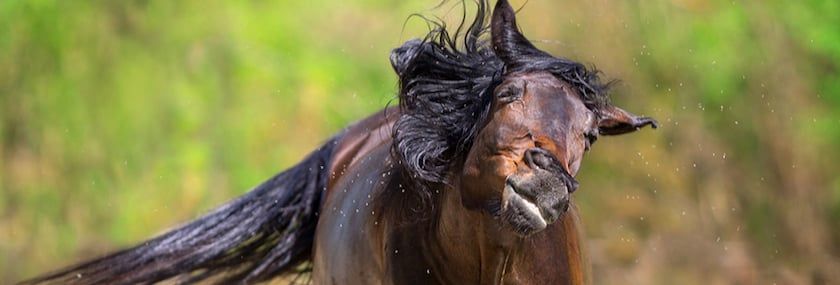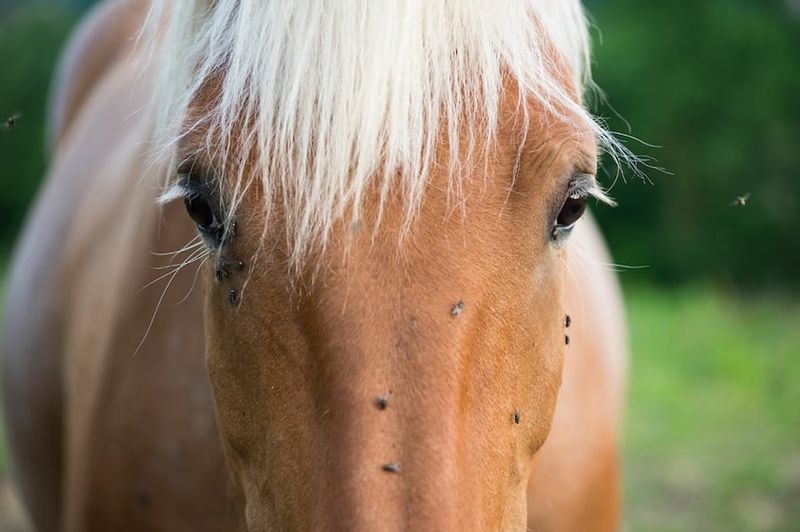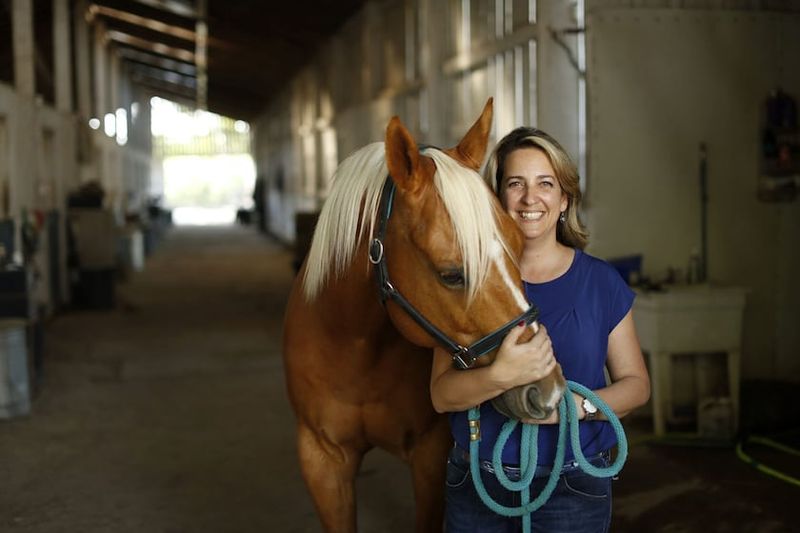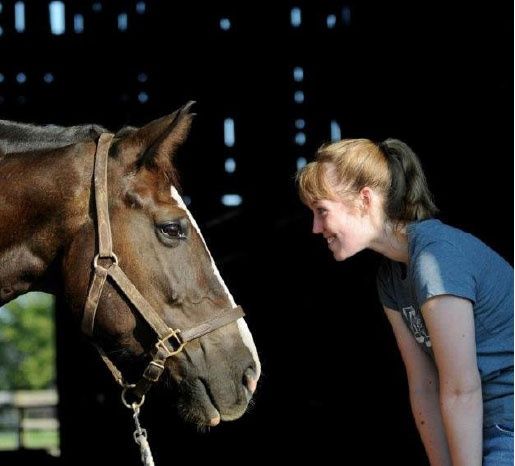Flies and Stables


Is There A ‘Natural’ Way To Keep Flies At Bay?
As fly season gets into full swing, you may find yourself pausing as you grab the fly spray bottle, wondering what exactly is in there. Over the years—possibly thanks to my development of my backyard into a pollinator-friendly garden—I’ve found myself stopping to question how critical a particular chemically-based product really is.
Our society has become generally a little less tolerant of chemical use, particularly as we learn more about some of the ingredients in familiar products which may carry with them health risks.
It’s difficult to call much of horse care “natural” but I do hear people wondering whether there is a more natural way to control flies around the barn besides the traditional fly sprays.
The answer seems to depend on what you consider “control.”
Spray the problem away?
Most people use some sort of spray on their horse at some point to deal with flies; there are some sprays that are designed to kill flies that come into contact with it, and others that simply aim to repel bugs.
Many fly sprays contain permethrin or pyrethrin, which are meant to kill bugs that come into contact with them, but that depends on how long they remain active.
Permethrin can lose effectiveness in two hours or less depending on conditions, and pyrethrin in thirty minutes, depending on conditions.
Sometimes those products are available in concentrated gels applied to the horse’s topline for long-term use, and some companies produce headcollars infused with the products.
“For horses that are sensitive to bug bites, quite frankly, even fly sprays don’t work too well because they get degraded when the sun hits them,” said Dr. Fernanda Camargo, associate professor and equine extension specialist at the University of Kentucky. “For those cases, fly sheets, masks, and leg protectors are the only solution.”
Experts explain the need for fly control
There are a number of products on the market which rely on essential oils to help repel, but not kill, insects. Some people have luck with homemade fly spray relying on everything from vinegar to lemon juice to spot treatments of bacon grease.
The success of any topical product depends on its application, too. Although many of us just spritz a few clouds of spray at our horses’ legs, many companies that make fly sprays say their products are really most effective when sprayed all over the horse and brushed or rubbed into the coat to get the droplets to bind with the hair.
Why some more than others?
There’s individual horse variation, too – people have anecdotally known for some time that some horses seem to attract flies more than others, but in more recent years researchers may have figured out why.

Some studies have shown that the evolutionary purpose behind zebra stripes may be to confuse a fly’s vision and sense of direction, because their eyes may have an easier time focusing on a solid, darker animal. As a result, at least one company has begun making masks and sheets with a colorful stiped pattern to discourage flies from making a landing.
Experts agree it’s probably more effective to try your spray-of-choice alongside good stable management practices.
Where there are horses, there will be flies, but there are some things you can do to reduce the number of flies you have to do battle with.
Engage your environment
The best thing you can do is properly dispose of manure, whether that means having it hauled off or composted, far away from the barn.
Removing piles from pastures or dragging to break them up could also help. Eliminate standing water or mud whenever possible, as flies are also attracted to humidity.
“I also don’t like sweet feed, as the flies love it. So I only feed pelleted feed,” said Camargo. “Fans over the horse work well, as they prevent the flies from landing on the horse. But these fans need to be strong, to actually prevent that. In general, barns with good ventilation will have less flies.”
Turn off lights in the barn at night whenever possible—Camargo said those will attract flies which could fall into a horse’s water bucket or trough, which is thought to increase their risk of catching an illness like Potomac Horse Fever.

One natural solution that does seem to work: natural predation. Fly predators are insects which attack flies in the pupal stage, laying eggs inside the fly cocoons. They will only work against certain types of flies, but can be effective against those species and do not bother people or other animals.
Several companies now sell fly predators in the larval stage for release during the appropriate time of year based on your geographic area and the size of your property.
Get inside tips on predators:
In the end, there is no one-size-fits-all answer to fly control, and a practice or recipe one person swears by may do nothing for another horse. The best thing you can do is try a few different options to see what combination works best for your location and your animals.
Tags:Horse Sense

Acreage Life is part of the Catalyst Communications Network publication family.
















